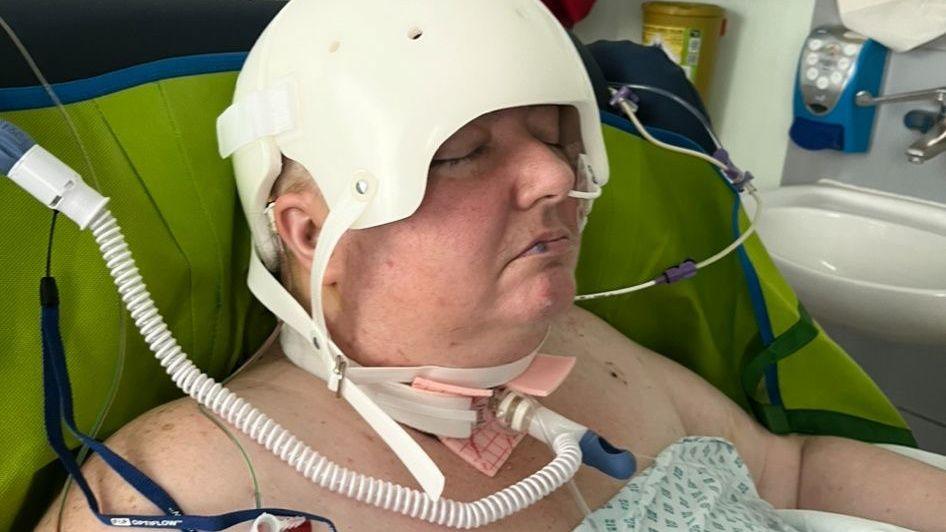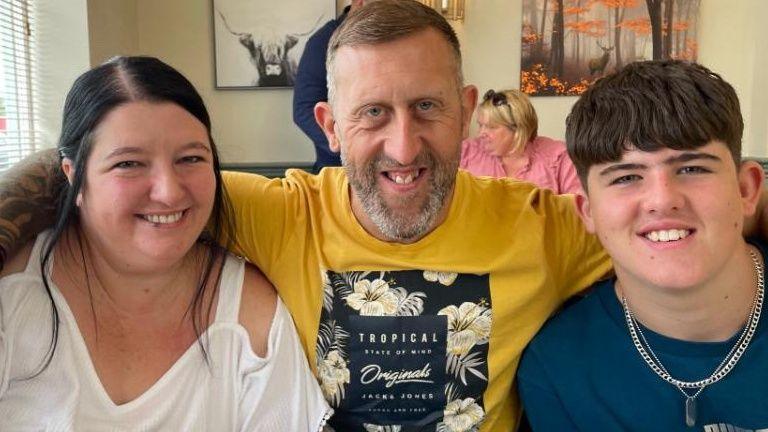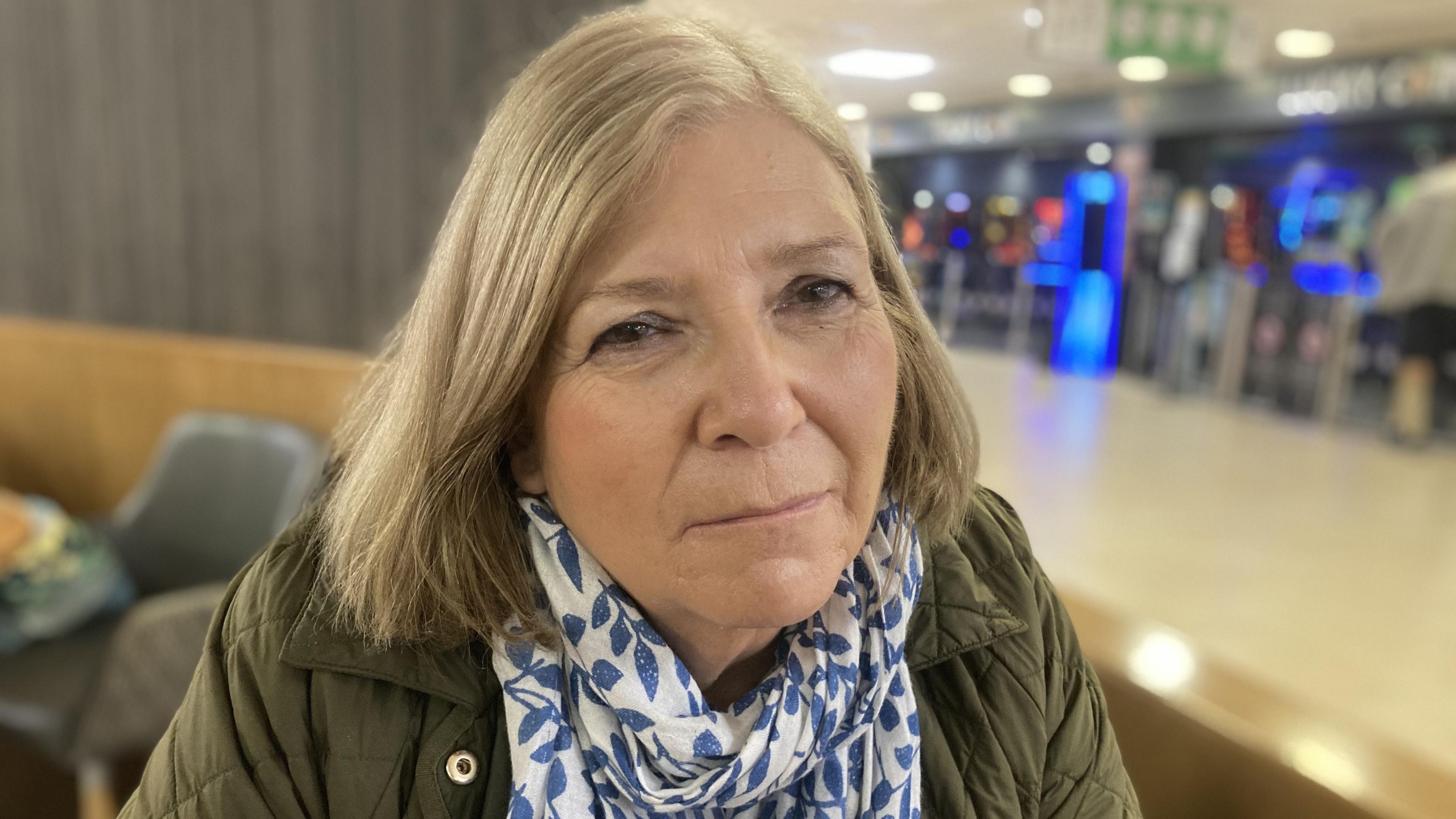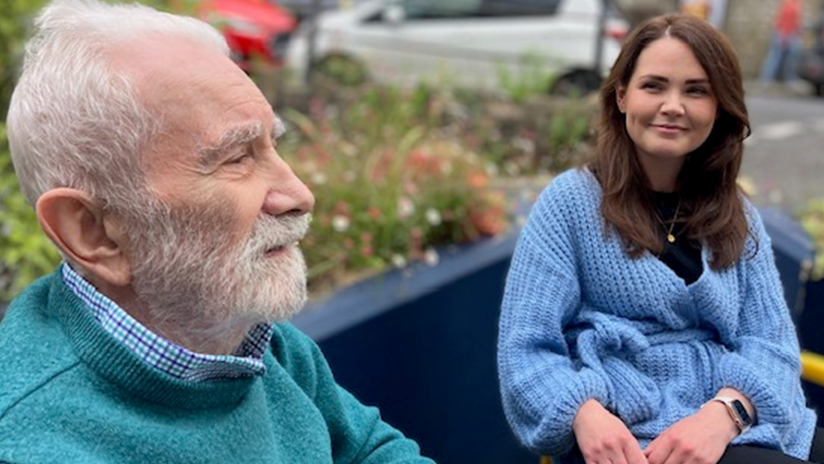Family 'let down' by social care after wife's surgery
David Price said the social care system was failing
- Published
The social care system is "failing" according to a man who became his wife's primary carer at the age of 47.
Complications following the removal of a brain tumour left Georgina Price needing round-the-clock care.
Her husband David Price, from Swindon, said a lack of information had left him "confused" and "vulnerable".
Oxford University Hospitals NHS Foundation Trust apologised for the challenges encountered by the couple, while Swindon Borough Council said its adult social care team offered timely services and assessments to help "maximise independence".
After multiple surgeries and six months of rehabilitation at the Oxford Centre for Enablement (OCE), Mrs Price, 47, was discharged and returned home to Swindon in May.
Navigating the care system for the first time has left Mr Price feeling he and others are being "let down".
"There needs to be more information," he said. "This whole journey is completely new to us, I still don't know what questions I should be asking."

Georgina Price suffered complications during surgery to remove a brain tumour in July 2023
After five months as his wife's primary carer, Mr Price said he still felt "vulnerable" and "confused" because he "doesn't understand the system".
On discharge, the couple moved in with Mr Price's parents.
He said: "They have adaption in their home for her needs.
"I'm on the couch, all 6ft 3in of me, because I need to be downstairs with her because she's in a hospital bed.
"I need to be close by when she needs to use the loo."

Georgina, David and Sam Price before Mrs Price's diagnosis
Mr Price said the situation was like being handed a "horrible deck of cards".
"Not only are you trying to process everything that's happened, you're also trying to control your own mental health, your family's mental health," he added.
"You're trying to find all this information that you need - I think the support system is failing for everybody."
Janet Shreeve, from Shreeve Care Services, stepped in to help the family after being contacted by a mutual friend.
"I read the email and burst into tears," said Ms Shreeve.

Janet Shreeve spoke of her admiration for the Price family
With more than 20 years of experience in care services, Ms Shreeve said a "lack of communication" was why people did not know what support was available to them.
"There's nobody giving you the information as to what your choices are or if there is information given it's very limited," she said.
Ms Shreeve added she had "nothing but admiration" for the care Mr Price gave to his wife.
'We are sorry'
Lisa Glynn, acting chief operating officer at Oxford University Hospitals NHS Foundation Trust, said: “We are sorry that Mr and Mrs Price encountered challenges once discharged from the Oxford Centre for Enablement.
"While we are unable to comment on individual cases, we have processes in place to discharge patients as effectively as possible to our partners, including local authorities."
A Swindon Borough Council spokesperson said while they also did not discuss individual cases, they would "welcome the chance" to discuss any concerns directly with Mr and Mrs Price.
They added: “It can take a great deal of adjustment whenever anyone is discharged from hospital and they require ongoing support to enable them to live at home.
"Our adult social care team will therefore step in to help individuals maximise their independence and aid their recovery.
“This will take place as soon as the individual is discharged from hospital and our reablement team will provide support to allow the person to settle back into living in their home.
“Our Intermediate Care team will then allocate a Care Act Assessment and consider long-term support options. These assessments are always undertaken in a timely manner so the individual and their carer receive the support they need."
Related topics
- Published21 October 2024

- Published2 August 2024

- Published20 September 2024
